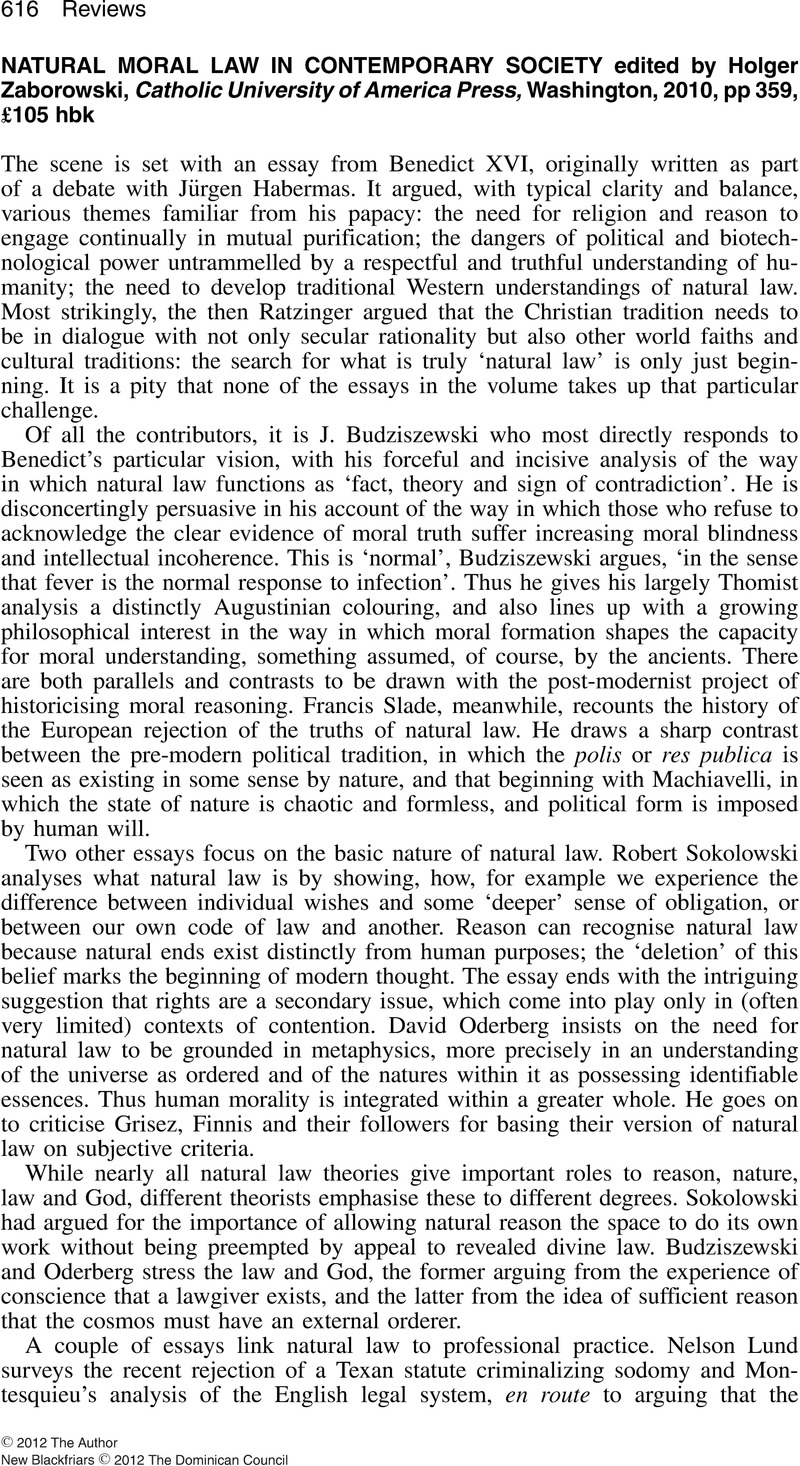No CrossRef data available.
Article contents
Natural Moral Law in Contemporary Society edited by Holger Zaborowski, Catholic University of America Press, Washington, 2010, pp 359, £105 hbk
Review products
Natural Moral Law in Contemporary Society edited by Holger Zaborowski, Catholic University of America Press, Washington, 2010, pp 359, £105 hbk
Published online by Cambridge University Press: 01 January 2024
Abstract
An abstract is not available for this content so a preview has been provided. Please use the Get access link above for information on how to access this content.

- Type
- Reviews
- Information
- Copyright
- © 2012 The Author. New Blackfriars © 2012 The Dominican Council


